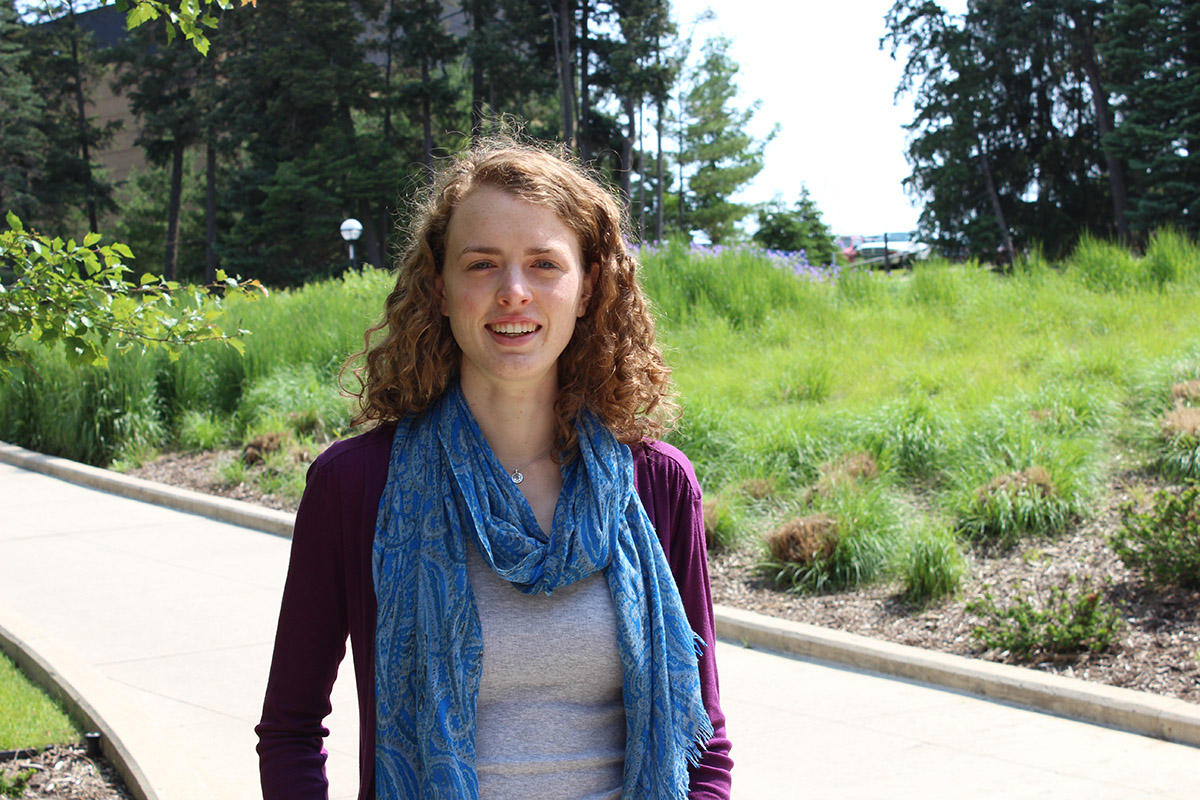Stephanie Crocker Ross receives Rackham Predoctoral Fellowship
Dissertation recognized as unusually creative, ambitious and impactful.

 Enlarge
Enlarge
Stephanie Crocker Ross, a PhD candidate advised by Professor Johanna Mathieu, received a Rackham Predoctoral Fellowship, which supports outstanding doctoral students working on “unusually creative, ambitious and impactful” dissertations.
“I’m working on integrating more renewable power into the grid while making sure everyone’s lights stay on,” Crocker Ross said.
The supply of electricity in a power grid must closely track demand, and maintain a stable voltage and frequency. However, renewable power sources like solar and wind can disrupt the even flow of electrical supply.
“We have a grid that is increasingly going to be supplied by renewable power, which is unpredictable and fluctuates,” Crocker Ross continues. “We will need more resources that balance out the fluctuation in supply.”
To solve this, Crocker Ross researches both instantaneous and long-term responses to disruptions in grid supply.
For instantaneous responses to disturbances, Crocker Ross explains that the mechanical momentum of the large rotors that spin in conventional thermal generators can mitigate immediate issues. Solar panels, however, have no such large rotating mass, and will need to provide grid stability and allow for flexibility to account for potential disturbances. Crocker Ross has recently begun studying how this might be achieved.
For slower, but longer-lasting, responses to disruptions, Crocker Ross has been studying the effects of controlling fleets of power-hungry air conditioners and hot water heaters. By being able to adjust these large appliance power loads, and turn them on or off based on demand signals, the grid can have more flexibility to balance electrical supply and demand.
Crocker Ross states the findings, so far, have show the only issues that synchronized demand response creates are related to voltage. Her future work will target these voltage issues.
This year, 82 Rackham Predoctoral Fellowships were available, chosen from 240 students who were nominated by their program.
 MENU
MENU 
